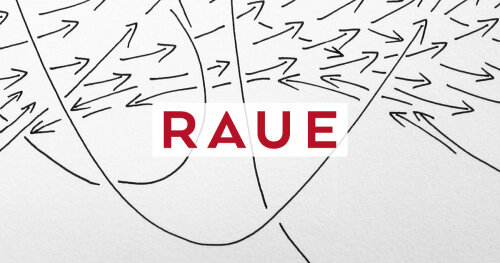Best Antitrust Litigation Lawyers in Berlin
Share your needs with us, get contacted by law firms.
Free. Takes 2 min.
List of the best lawyers in Berlin, Germany
About Antitrust Litigation Law in Berlin, Germany
Antitrust litigation in Berlin, Germany, refers to legal proceedings arising from the enforcement of competition laws that aim to prevent unlawful restraints on trade and unfair business practices. These laws are designed to protect consumers and ensure a competitive marketplace by prohibiting activities such as price-fixing, market sharing, and abuse of dominant positions. Antitrust cases can be initiated by regulatory authorities, competitors, or affected parties and may be heard in specialized courts. Berlin, as the capital and largest city in Germany, is a significant hub for such legal matters due to its vibrant business and economic environment.
Why You May Need a Lawyer
There are various situations in which individuals or businesses might require legal help in antitrust litigation. Common scenarios include suspicion or accusation of engaging in anti-competitive conduct such as collusion or abuse of dominance, being investigated by regulatory authorities like the Federal Cartel Office (Bundeskartellamt), or suffering harm due to competitors’ anti-competitive actions. A qualified antitrust lawyer provides crucial guidance in navigating complex investigations, representing clients in court, and seeking damages or defending against claims. Legal assistance is invaluable for understanding rights, obligations, and the potential impact on business operations.
Local Laws Overview
Antitrust laws in Berlin, Germany, are governed primarily by the Act Against Restraints of Competition (Gesetz gegen Wettbewerbsbeschränkungen - GWB). This federal statute sets the framework for prohibiting agreements that restrict competition, abusing dominant market positions, and overseeing mergers that could impede effective competition. The European Union also plays a significant role, as its antitrust regulations (such as Articles 101 and 102 of the Treaty on the Functioning of the European Union) apply in Germany alongside national laws. Enforcement is led by the Federal Cartel Office and, in certain cases, by the European Commission. Private damages claims can also be brought before German courts by parties who have suffered from anti-competitive behavior.
Frequently Asked Questions
What is antitrust litigation?
Antitrust litigation is a legal process in which parties challenge violations of competition laws, such as price-fixing, monopolistic practices, or unlawful mergers. These proceedings can involve both defending against and seeking remedies for anti-competitive behavior.
Who enforces antitrust laws in Berlin?
In Berlin and across Germany, antitrust laws are enforced primarily by the Federal Cartel Office (Bundeskartellamt) and sometimes by the European Commission for cases with broader European implications.
What types of conduct are prohibited under German antitrust law?
Prohibited conduct includes price-fixing, market allocation, bid rigging, abuse of market dominance, and certain restrictive agreements between companies that harm competition.
Can individuals or companies file a lawsuit if harmed by anti-competitive behavior?
Yes, both individuals and companies can file private damages claims in German courts if they have suffered harm due to anti-competitive practices.
What are the potential penalties for violating antitrust laws in Germany?
Penalties can include substantial fines, orders to cease illegal conduct, the invalidation of contracts, and, in some cases, personal liability for company directors.
Is compliance with European Union antitrust law also required?
Yes, companies operating in Berlin must comply with both German and EU antitrust regulations, especially when their conduct affects trade within the European Single Market.
What is the process of an antitrust investigation?
Investigations typically begin with a complaint or ex officio action, followed by requests for information, dawn raids, and ultimately, the decision to bring a case before a court.
How long do antitrust cases typically take?
The duration varies significantly depending on case complexity. Investigations can last from several months to several years, particularly if appeals are involved.
Can I appeal an antitrust decision?
Yes, parties have the right to appeal antitrust decisions in German administrative and civil courts, and in some instances, to the European Court of Justice.
Do small businesses need to worry about antitrust laws?
Yes, even small businesses must comply with antitrust laws. While enforcement may focus on larger players, any entity can be subject to investigation and liability.
Additional Resources
- Federal Cartel Office (Bundeskartellamt) - the main regulatory agency for enforcing antitrust law in Germany - Berlin Chamber of Commerce and Industry - offers information and seminars on competition compliance - European Commission Directorate-General for Competition - provides guidance on EU-wide antitrust regulations - Local consumer protection agencies and business associations in Berlin for support and advice
Next Steps
If you believe you are affected by or accused of anti-competitive behavior, or if you need general legal advice regarding antitrust matters, it is advisable to consult a qualified antitrust litigation lawyer in Berlin. Start by gathering all relevant documents and information regarding your situation. Reach out to a law firm or legal advisor experienced in competition law for an initial consultation. Many legal practitioners offer preliminary assessments to help you understand your options, potential risks, and the appropriate course of action. Timely legal advice can protect your rights and give clarity on next steps in complex antitrust matters.
Lawzana helps you find the best lawyers and law firms in Berlin through a curated and pre-screened list of qualified legal professionals. Our platform offers rankings and detailed profiles of attorneys and law firms, allowing you to compare based on practice areas, including Antitrust Litigation, experience, and client feedback.
Each profile includes a description of the firm's areas of practice, client reviews, team members and partners, year of establishment, spoken languages, office locations, contact information, social media presence, and any published articles or resources. Most firms on our platform speak English and are experienced in both local and international legal matters.
Get a quote from top-rated law firms in Berlin, Germany — quickly, securely, and without unnecessary hassle.
Disclaimer:
The information provided on this page is for general informational purposes only and does not constitute legal advice. While we strive to ensure the accuracy and relevance of the content, legal information may change over time, and interpretations of the law can vary. You should always consult with a qualified legal professional for advice specific to your situation.
We disclaim all liability for actions taken or not taken based on the content of this page. If you believe any information is incorrect or outdated, please contact us, and we will review and update it where appropriate.














